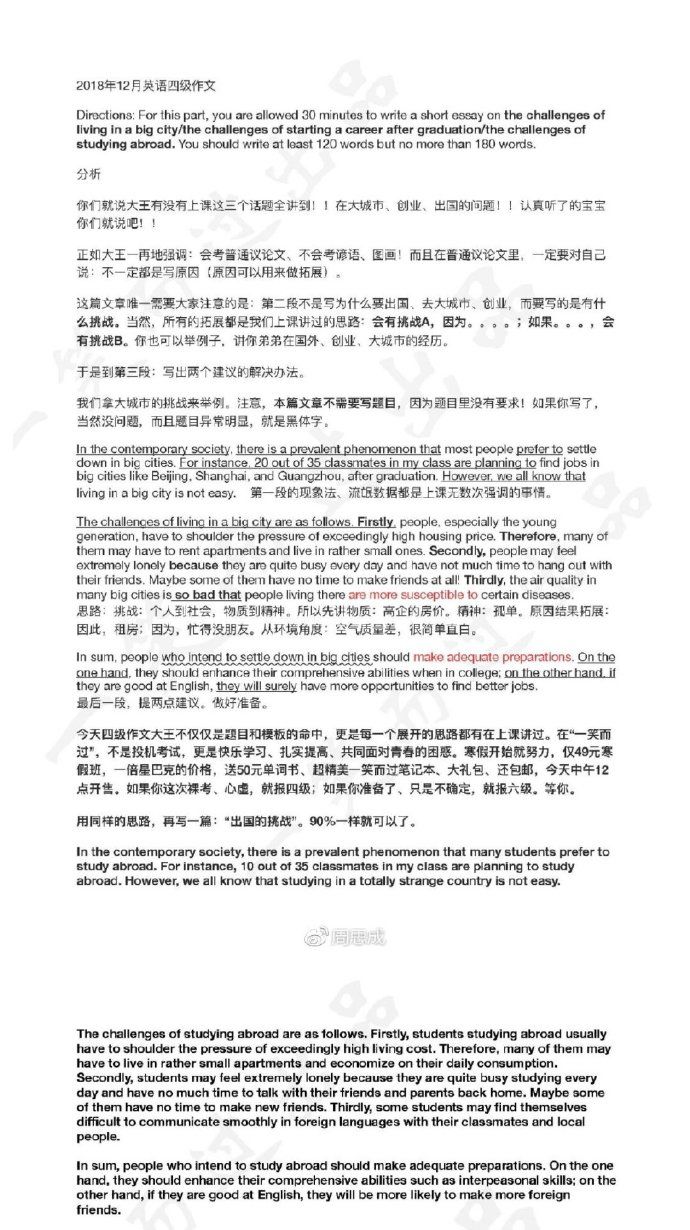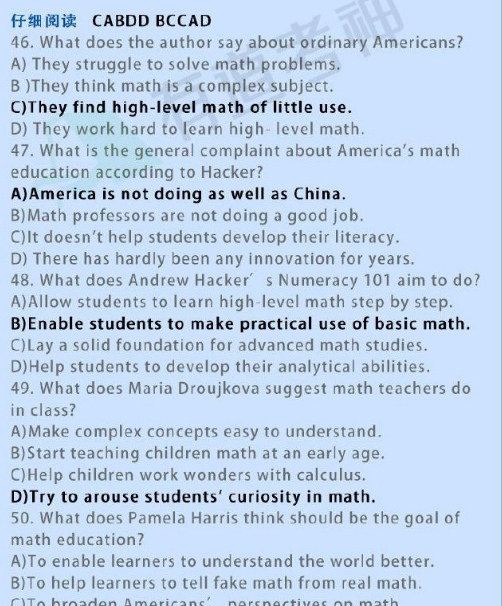GMAT考试-Testprep数学精解(10)
|
During the late seventies when Japan was rapidly expanding its share of the American auto market, GM surveyed owners of GM cars and asked them whether t hey would be more willing to buy a large, powerful car or a small, economica l car. Seventy percent of those who responded said that they would prefer a large car. On the basis of this survey, GM decided to continue building larg e cars. Yet during the'80s, GM lost even more of the market to the Japanese …… Which one of the following, if it were determined to be true, would best exp lain this discrepancy. (A) Only 10 percent of those who were polled replied. (B) Ford which conducted a similar survey with similar results continued to build large cars and also lost more of their market to the Japanese. (C) The surveyed owners who preferred big cars also preferred big homes. (D) GM determined that it would be more profitable to make big cars. (E) Eighty percent of the owners who wanted big cars and only 40 percent of the owners who wanted small cars replied to the survey. The argument generalizes from the survey to the general car-buying populatio n, so the reliability of the projection depends on how representative the sa mple is. At first glance, choice (A) seems rather good, because 10 percent d oes not seem large enough. However, political opinion polls are typically ba sed on only .001 percent of the population. More importantly, we don't know what percentage of GM car owners received the survey. Choice (B) simply stat es that Ford made the same mistake that GM did. Choice (C) is irrelevant. Ch oice (D), rather than explaining the discrepancy, gives even more reason for GM to continue making large cars. Finally, choice (E) points out that part of the survey did not represent the entire public, so (E) is the answer. Analogy To argue by analogy is to claim that because two things are similar in some respects, they will be similar in others. Medical experimentation on animals is predicated on such reasoning. The argument goes like this: the metabolis m of pigs, for example, is similar to that of humans, and high doses of sacc harine cause cancer in pigs. Therefore, high doses of saccharine probably ca use cancer in humans Clearly, the greater the similarity between the two things being compared th e stronger the argument will be. Also the less ambitious the conclusion the stronger the argument will be. The argument above would be strengthened by c hanging “probably” to “may.” It can be weakened by pointing out the dissimil arities between pigs and people. Example: Just as the fishing line becomes too taut, so too the trials and tribulation s of life in the city can become so stressful that one's mind can snap. Which one of the following most closely parallels the reasoning used in the argument above? (A) Just as the bow may be drawn too taut, so too may one's life be wasted p ursuing self-gratification. (B) Just as a gambler's fortunes change unpredictably, so too do one's caree r opportunities come unexpectedly. (C) Just as a plant can be killed by over watering it, so too can drinking t oo much water lead to lethargy. (D) Just as the engine may race too quickly, so too may life in the fast lan e lead to an early death. (E) Just as an actor may become stressed before a performance, so too may dw elling on the negative cause depression. The argument compares the tautness in a fishing line to the stress of city l ife; it then concludes that the mind can snap just as the fishing line can. So we are looking for an answer-choice that compares two things and draws a conclusion based on their similarity. Notice that we are looking for an argu ment that uses similar reasoning, but not necessarily similar concepts. In f act, an answer-choice that mentions either tautness or stress will probably be a same-language trap. Choice (A) uses the same-language trap——notice “too taut.” The analogy betwe en a taut bow and self-gratification is weak, if existent. Choice (B) offers a good analogy but no conclusion. Choice (C) offers both a good analogy and a conclusion; however, the conclusion, “leads to lethargy,” understates the scope of what the analogy implies. Choice (D) offers a strong analogy and a conclusion with the same scope found in the original: “the engine blows, th e person dies“; ”the line snaps, the mind snaps.“ This is probably the best answer, but still we should check every choice. The last choice, (E), uses l anguage from the original, “stressful,” to make its weak analogy more tempti ng. The best answer, therefore, is (D)。 |








